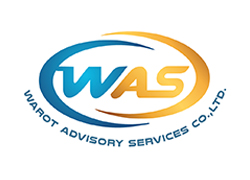The volume of merger and acquisition (M&A) activities in Thailand increased significantly in 2023, and it is anticipated that the number will continue to rise during 2024. Both public and private companies have used M&A as a method to achieve their goals and expand their business activities rather than setting up a new business from scratch. Currently, M&A activities are particularly active among private companies, particularly smaller transactions between private companies, because M&A as a business tool is now easier to access than it has been in the past. However, public companies continue to be key players in M&A activities in Thailand.
RECENT DEVELOPMENTS
The Thai government issued merger control regulations at the end of 2018, and companies, lawyers and business consultants have since had to take the new laws into consideration when conducting M&A activities. In addition, there is a new concept of M&A transactions under the Civil and Commercial Code called “merger”. This is where two or more companies merge, but only one participant survives.
In 2023, there were several remarkable deals. One notable deal is the sale of the KFC business in Thailand by Restaurants Development to a subsidiary of an Indian-listed company for more than THB4 billion (USD109.5 million).
METHODS FOR M&A ACTIVITIES
The acquisition of a company’s shares and the acquisition of a business and assets are the most common acquisition methods in Thailand.

Founding Partner
Warot Advisory Services
Bangkok
Tel: +66 8 1802 5698
Email: warot@warotadvisoryservices.com
Acquisition of shares. Share acquisition is the most common method for a company to acquire a target company. It is easier to implement, but due diligence must be conducted to identify risks in the target company, and indemnities and warranties should be incorporated in the share purchase agreement.
It is worth noting that the transfer of shares will be subject to stamp duty in Thailand at a rate of 0.1% of the greater of transfer value or par value.
Acquisition of businesses/assets. The acquisition of assets should be considered when the acquirer does not want to run the risk of the target company having hidden legal and tax liabilities which, in this case, would generally remain with the target company and not transferred with the business or its assets.
Nonetheless, the Foreign Business Act may restrict foreign companies from directly holding a business and/or its assets. In that case, a Thai company must be established to hold the target business and its assets in Thailand. In addition, certain legal requirements would also have to be met.
Please note that the transfer of assets is normally subject to value-added tax and certain transactional documents are subject to stamp duty and other fees in Thailand.
Joint Venture company. A joint venture company can be set up between companies (either between foreign and Thai companies; between two or more foreign companies; or between only Thai companies) to operate a business in Thailand that may require knowledge and know-how from both parties. In some cases, the joint venture companies are set up specifically to comply with the Foreign Business Act, where the foreign companies would like to do business that is usually restricted for them in Thailand.
Relevant regulations. Civil and Commercial Code (CCC). The CCC plays an important role in private M&A transactions as they become more active in Thailand. In some cases, consultation with the registrar is recommended, especially when the deal structures are complex.
The Department of Business Development is a government agency that oversees the CCC.
Foreign Business Act (FBA). The FBA is the most important regulation to be considered when foreign companies conduct M&A transactions in Thailand. The FBA forbids or otherwise restricts foreign nationals and companies from doing some business activities in Thailand, including most associated with the service industry.
For FBA restrictions, a “foreigner” is classified as: a foreign individual; a company incorporated outside Thailand; or a company incorporated in Thailand but majority-owned by foreign individuals or foreign companies.
In some cases, foreign companies shall not be able to hold more than 50% of shares in a Thai company. The Foreign Business Department in the Ministry of Commerce is a government agency that oversees the FBA.
Trade Competition Act (TCA). Since the TCA came into effect in 2018, it has played an important role in Thai M&A transactions. Any M&A transaction that meets the requirements under the TCA must: (1) obtain pre-approval; or (2) issue a post- notification of the transactions. In short, pre-approval will be required if the proposed M&A transaction creates a monopoly, and post-notification will be required if the M&A transaction reduces competition in the market.
The Office of the Trade Competition Commission is a government agency that oversees the TCA.
Labour Protection Act (LPA). In share acquisition transactions, there will be no requirement to obtain prior consent from the employees as, legally speaking, the employer remains the same.
However, in the acquisition of businesses and/or assets that involve the transfer of employees, the LPA requires all rights, duties and privileges of the employees to be assumed by the new employer, and the transfer of employment must be consented to by the employees. If any employee does not consent or does not want to work for the new employer and the existing employer stops operations, it is deemed that the employment contract is terminated and the employee will be entitled to severance pay from the existing employer.
The Department of Labour Protection and Welfare is a government agency that oversees the LPA.
Other Laws and Regulations. If any parties in an M&A is a public limited or listed company, the Public Limited Companies Act and the Securities and Exchange Act will also be important regulations to be taken into consideration. The Land Code (together with the FBA) must also be considered when land is included as a target company asset.
It is important to note that M&A activities in different industries may be subject to different and specific regulations.
CHOICE OF ACQUISITION FUNDING
In acquisition transactions, an acquirer must decide whether to fund the vehicle with debt or equity, or even a hybrid instrument, which combines the characteristics of debt and equity.
Debt. The advantage of using debt is the deductibility of interest for tax purposes and the ease in repatriating the investment through the repayment of principal. On the other hand, the payment of dividends is not deductible and returns of capital can be an onerous and time-consuming task.
Thailand does not have thin capitalisation rules.
Equity. An acquirer may use equity to fund its acquisition. However, this method may not be attractive since dividends are not deductible for Thailand tax purposes, and dividends cannot be distributed unless the company is profitable. Also, a return of capital (equity) will be more difficult than a return of the loan.
However, in the cases of a joint venture or investment in startups, it is more common to seek equity funding rather than debt funding.
Entire business transfer, amalgamation and merger. Under the Thai Revenue Code, a company may conduct an entire business transfer under which the business and liabilities of one company are transferred to another company through a share swap. If all conditions are met, the entire business transfer will be considered a tax-free transaction.
Thailand also has an amalgamation process where two companies can merge to form a new company. This transaction should be free from Thai corporate income tax, and any tax losses in either of the original companies will be lost (not carried over to the new company). Both the original companies will be dissolved as a part of the amalgamation process.
The merger is a new concept under the CCC and gives companies more flexibility in business acquisitions. Nonetheless, the new merger regime has not been widely adopted due to a lack of knowledge about, and uncertainty of, the related rules and regulations.

1055/655 State Tower 31st Floor
Silom Road Silom, Bangrak
Bangkok – 10500 Thailand
www.warotadvisoryservices.com
































